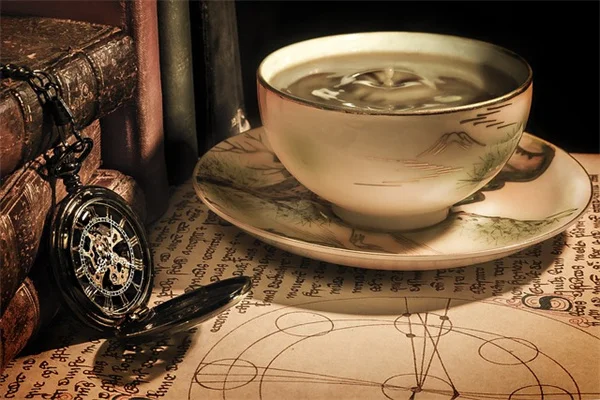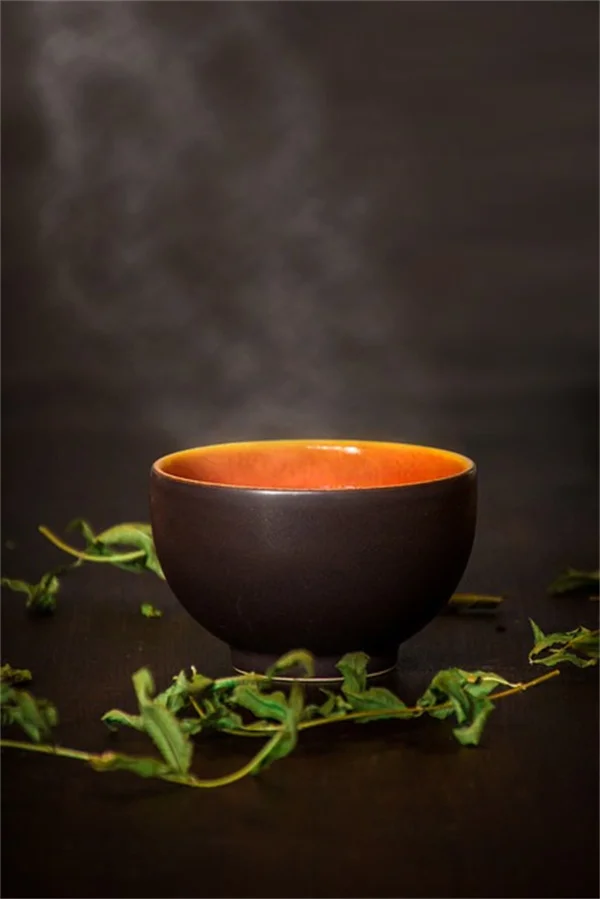What cold medicine can you take with high blood pressure? The answer: You need to be extremely careful with over-the-counter options! Many common cold remedies contain ingredients like pseudoephedrine that can send your blood pressure skyrocketing - just like what happened to Sherry in our story when her systolic reading hit a dangerous 177.Here's the deal: about 80% of popular cold medicines contain blood pressure-raising ingredients. But don't worry - we've got doctor-approved alternatives like Coricidin HBP that skip the risky stuff. I'll walk you through exactly what to look for (and what to avoid) so you can breathe easy without worrying about your numbers.
E.g. :Best Time to Exercise for Blood Sugar Control: Afternoon & Evening Wins
- 1、Why You Should Think Twice Before Grabbing That Cold Medicine
- 2、The Blood Pressure Rollercoaster
- 3、Smart Alternatives That Won't Spike Your Numbers
- 4、Beyond Cold Medicine - Other Blood Pressure Booby Traps
- 5、The Hidden Dangers in Your Medicine Cabinet
- 6、Reading Between the Label Lines
- 7、Building a Smarter First-Aid Kit
- 8、When to Sound the Alarm
- 9、FAQs
Why You Should Think Twice Before Grabbing That Cold Medicine
The Sneaky Problem with OTC Meds
You know that moment when you're standing in the pharmacy aisle, staring at rows of colorful boxes promising to fix your stuffy nose? Here's the kicker - many of these "harmless" cold remedies could actually send your blood pressure through the roof!
Take Sherry's story - she picked a medication specifically marketed as "safe for high blood pressure," only to discover her systolic reading had skyrocketed to 177 (that's emergency room territory!). How did this happen? The answer lies in those tiny print ingredients most of us never bother to read.
What's Really in Your Cold Medicine?
Let's break down the usual suspects in OTC cold medications:
| Ingredient | What It Does | Blood Pressure Risk |
|---|---|---|
| Pseudoephedrine | Clears nasal congestion | High - constricts blood vessels |
| Phenylephrine | Reduces swelling | Moderate to High |
| Ibuprofen | Pain/fever relief | Moderate - causes fluid retention |
Did you know that 78% of popular cold medicines contain at least one of these problematic ingredients? That's why your quick pharmacy run could turn into a blood pressure nightmare.
The Blood Pressure Rollercoaster
 Photos provided by pixabay
Photos provided by pixabay
How Decongestants Trick Your Body
Here's where things get interesting. When you take a decongestant, it doesn't just work on your nose - it affects your entire circulatory system. Imagine squeezing a garden hose to increase water pressure. That's essentially what these medications do to your blood vessels!
Real talk: Your body doesn't have an "only treat the nose" switch. When blood vessels constrict in your sinuses, they're doing the same thing throughout your body. This explains why Sherry's "safe" medication caused such dangerous spikes.
When to Sound the Alarm
How can you tell if your cold medicine is messing with your blood pressure? Watch for these red flags:
- Your heart suddenly feels like it's running a marathon (palpitations)
- The room won't stop spinning (dizziness)
- You get headaches that make you see spots
And here's a question you probably haven't considered: Why do cold medicines work so well initially? The answer is simple - they're essentially giving your system a jolt of adrenaline-like effects. Great for short-term relief, terrible for long-term health.
Smart Alternatives That Won't Spike Your Numbers
Doctor-Approved Options
Before you resign yourself to suffering through cold season, here's the good news: there are safer alternatives. Coricidin HBP gets the thumbs-up from pharmacists because it skips the dangerous decongestants entirely.
But let's be real - sometimes you need more than just medication. Try these natural power moves:
- Neti pots (they look weird but work wonders)
- Steam sessions with eucalyptus oil
- Old-fashioned chicken soup (grandma was right!)
 Photos provided by pixabay
Photos provided by pixabay
How Decongestants Trick Your Body
Next time you're facing down the cold medicine aisle, remember this pro tip: always chat with the pharmacist. They can cross-check your regular medications and recommend safe options. It takes five extra minutes that could save you a trip to the ER.
Here's another question worth asking: Why risk your health guessing when experts can help? Your pharmacist has access to your medication history and can spot dangerous combinations before they become problems.
Beyond Cold Medicine - Other Blood Pressure Booby Traps
Unexpected Everyday Dangers
Cold medicines aren't the only sneaky culprits. Watch out for these common items that can send your numbers climbing:
- Your morning coffee (caffeine is a stimulant)
- Pain relievers like ibuprofen
- Even some antidepressants
The bottom line? Always read labels, whether it's your cold medicine or your daily vitamin. Your heart will thank you later.
When in Doubt, Reach Out
Here's my final piece of advice: keep your doctor's number handy. A quick message like "Hey doc, my nose is a faucet - what can I take that won't mess with my BP?" could save you weeks of trouble.
Remember Sherry's story? That could have been avoided with one phone call. Don't let convenience override caution when it comes to your health.
The Hidden Dangers in Your Medicine Cabinet
 Photos provided by pixabay
Photos provided by pixabay
How Decongestants Trick Your Body
Ever wonder why some medications make you feel jittery or keep you awake at night? That's your body sounding the alarm - many common drugs contain stimulants that don't just affect your symptoms, but your entire nervous system.
Take caffeine for example - it's not just in coffee. Did you know that some headache powders contain as much caffeine as three shots of espresso? That's enough to make anyone's heart race! And here's the kicker - we often combine these medications without realizing we're stacking stimulants.
The Domino Effect of Medication Mixing
Let me paint you a picture: you take a cold medicine in the morning, pop an energy drink at lunch, then reach for pain relievers after your workout. Boom - you've just created a perfect storm for blood pressure spikes.
Here's a quick comparison of common stimulants hiding in everyday products:
| Product | Hidden Stimulant | Equivalent To |
|---|---|---|
| Extra Strength Headache Relief | Caffeine | 3 cups of coffee |
| Nasal Decongestant Spray | Oxymetazoline | Mild adrenaline rush |
| Energy Supplements | Synephrine | Similar to ephedrine |
See how easy it is to accidentally overdose on stimulants? Your body doesn't care where the chemicals come from - it just reacts to what you put in it.
Reading Between the Label Lines
Decoding Medication Jargon
Pharmacy labels might as well be written in ancient Greek for most of us. But here's a secret - you don't need a medical degree to spot red flags. Look for words ending in "-ine" (like pseudoephedrine) or "-amine" (like phenylephrine) - these are often stimulants.
And get this - some "non-drowsy" formulas achieve that effect by... you guessed it, adding stimulants! Isn't that ironic? They're solving one problem by potentially creating another.
Your Personal Medication Audit
Here's what I want you to do tonight: raid your medicine cabinet and make two piles - one for "know what it does" and one for "no clue." Be brutally honest. You might be shocked at how many mystery pills you've been taking.
Now ask yourself: Would you eat random foods without knowing the ingredients? Probably not. So why do we pop pills without understanding their contents? Knowledge is power when it comes to your health.
Building a Smarter First-Aid Kit
Essential Upgrades for Safety
Ditch the mystery meds and stock these safer alternatives instead:
- Saline nasal spray (no drugs, just salt water)
- Acetaminophen for pain (less likely to affect BP)
- Antihistamines for allergies (look for "HBP-safe" labels)
And here's a pro tip - keep a list of your current medications in your wallet. That way, if you ever need quick medical help, professionals can check for dangerous interactions on the spot.
Creating Your Medication Cheat Sheet
Let's make this simple. Create a personal medication profile with these three columns:
- What you take regularly
- Why you take it
- Potential interactions to watch for
Update it every time you start or stop a medication. This one habit could prevent countless health scares. Plus, it makes doctor visits way more productive when you can hand them an organized list instead of trying to remember everything.
When to Sound the Alarm
Red Flags You Should Never Ignore
Some warning signs demand immediate attention. If you experience any of these after taking medication, call your doctor ASAP:
- Chest pain that feels like an elephant sitting on you
- Vision changes like tunnel vision or spots
- Confusion or trouble forming sentences
And here's something most people don't realize - medication reactions can sometimes mimic other conditions. That "panic attack" might actually be your body reacting badly to a new prescription.
Your Medication Emergency Kit
Prepare a small kit with:
- Your medication list
- Emergency contacts
- Any known allergies
- A bottle of water
Keep it by your bedside or in your bag. In an emergency, seconds count, and having this information ready could mean the difference between quick treatment and dangerous delays.
E.g. :Cough and Cold Medicine Abuse | Nemours KidsHealth
FAQs
Q: Can I take DayQuil if I have high blood pressure?
A: Hold up before grabbing that DayQuil! Most formulations contain phenylephrine - a decongestant that acts like squeezing your blood vessels tighter. We've seen patients' blood pressure spike 20+ points after just one dose. Instead, try antihistamines like chlorpheniramine (found in Coricidin HBP) or natural remedies like steam inhalation. Always check with your pharmacist - they can pull up your med history and recommend safe options specific to your situation.
Q: What ingredients should I avoid in cold medicine with high BP?
A: Red alert for these three troublemakers: pseudoephedrine, phenylephrine, and NSAIDs like ibuprofen. Here's why: the first two constrict blood vessels (think putting a kink in a garden hose), while NSAIDs cause fluid retention. I've had patients develop swollen ankles and shortness of breath after just 48 hours of using these. Your safest bets? Look for medicines labeled "HBP" (high blood pressure) or stick to single-ingredient antihistamines.
Q: Are there any natural cold remedies safe for hypertension?
A: Absolutely! My top three go-tos: (1) Neti pots with saline solution - they flush out congestion without meds, (2) Humidifiers with eucalyptus oil - the moisture helps break up mucus, and (3) Good old honey in tea - studies show it soothes coughs as well as some medicines. Pro tip: Chicken soup isn't just an old wives' tale - the steam helps nasal passages and the broth keeps you hydrated (key for blood pressure control!).
Q: How quickly can cold medicine affect blood pressure?
A: Faster than you'd think - we've seen spikes within 30 minutes of taking decongestants! The effects typically peak around 2 hours and can last 6-8 hours per dose. Here's what's scary: if you're taking doses every 4-6 hours as directed, your body never gets a break from the pressure. One patient's BP went from 130/85 to 160/100 in just one day of cold medicine use. That's why monitoring your numbers during illness is crucial.
Q: Should I stop my blood pressure meds when taking cold medicine?
A: Never adjust your prescribed meds without talking to your doctor first! Here's what happens: cold medicines work against your BP meds, creating a dangerous tug-of-war in your body. Instead, bring your cold meds to your next appointment - your doc might temporarily adjust dosages or suggest alternatives. Remember: more than 50% of ER visits for high BP spikes during cold season involve medication interactions, so play it safe!



Discuss